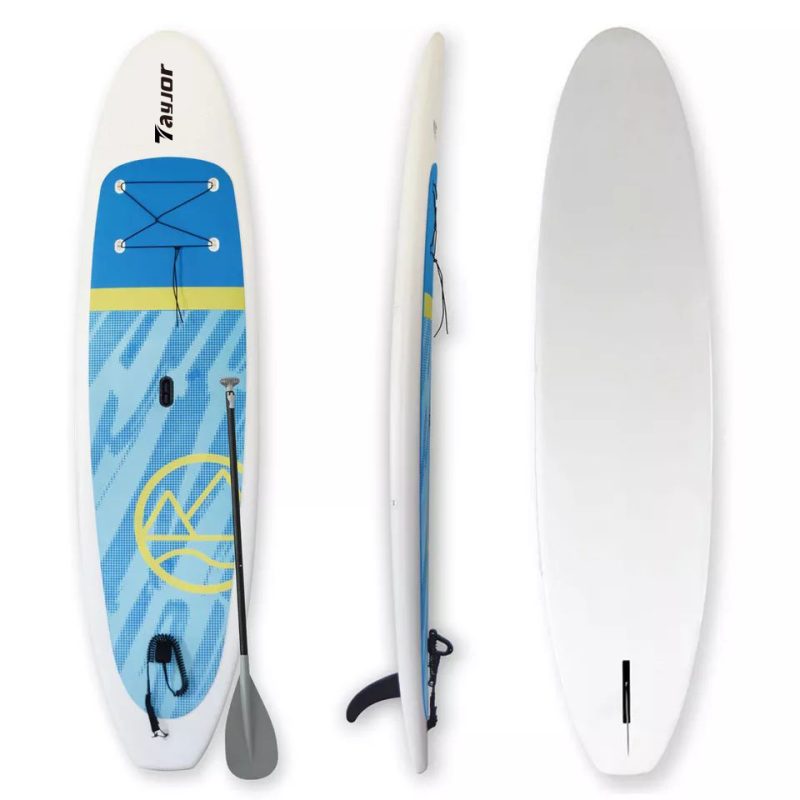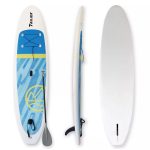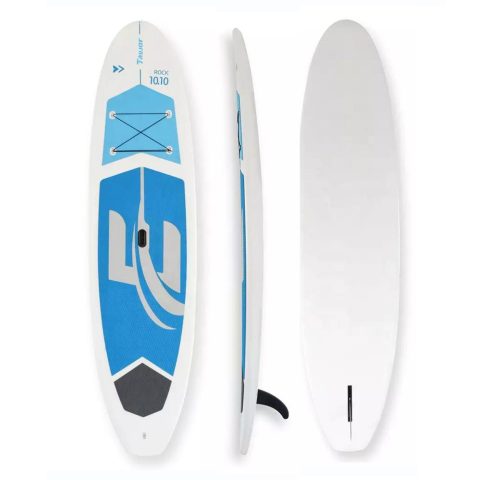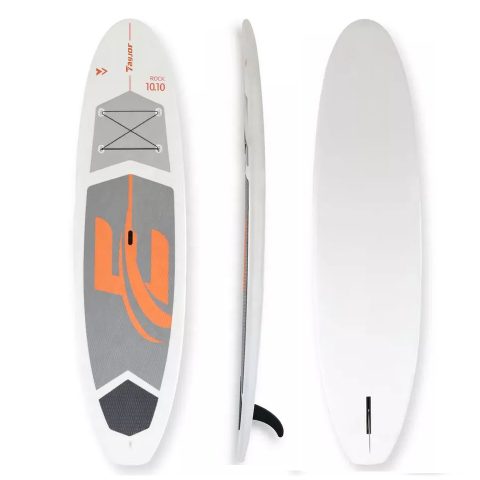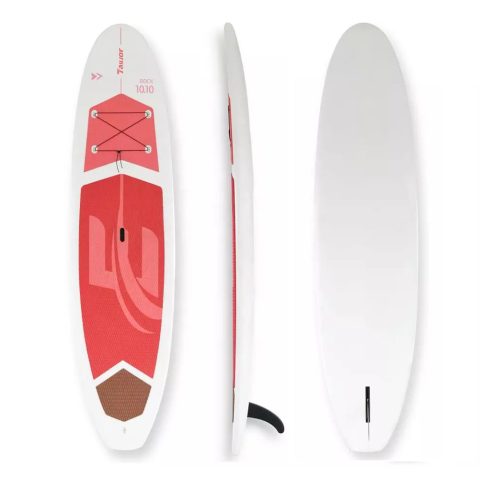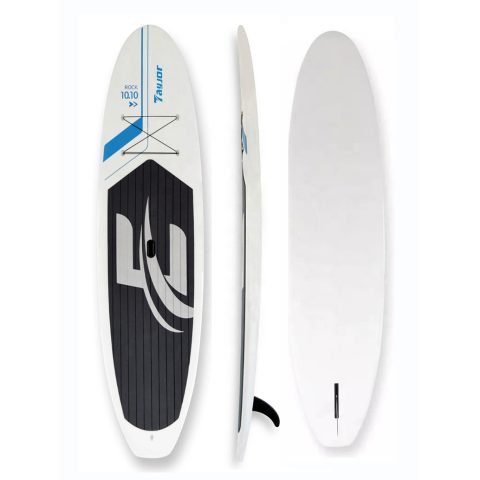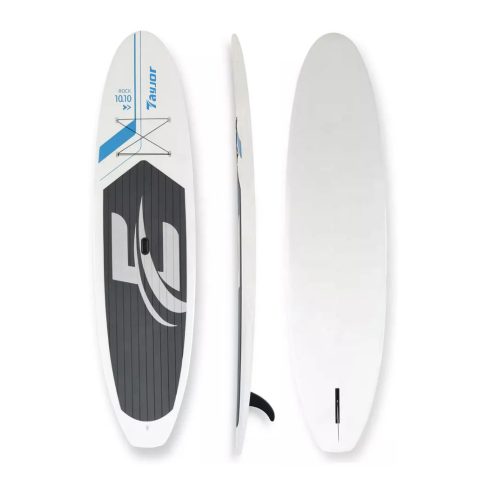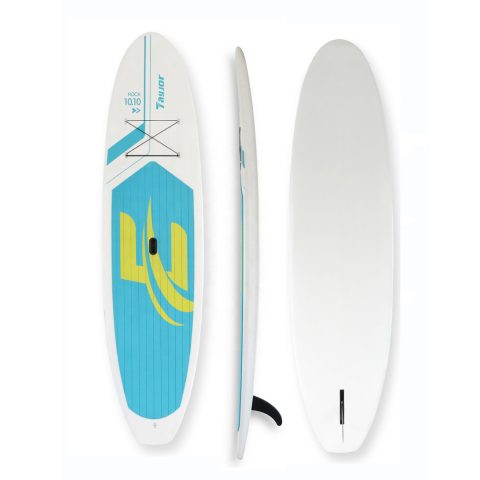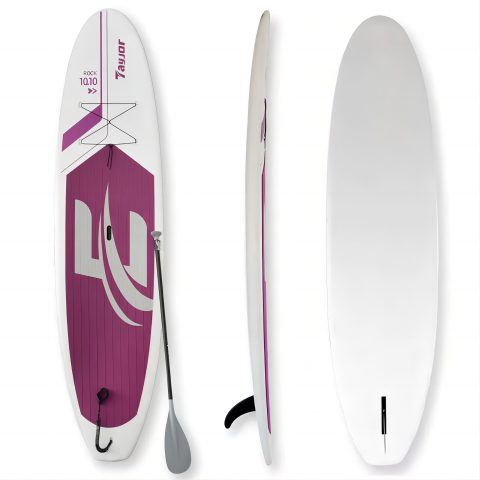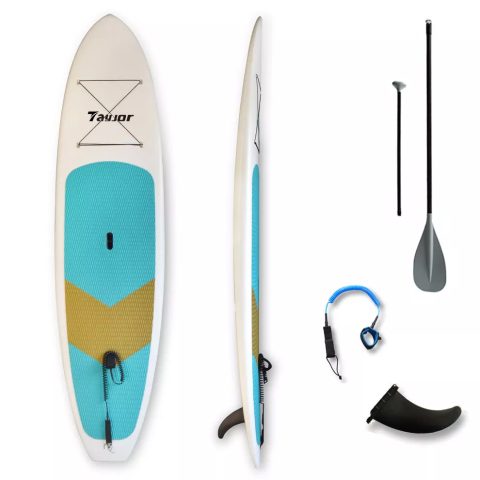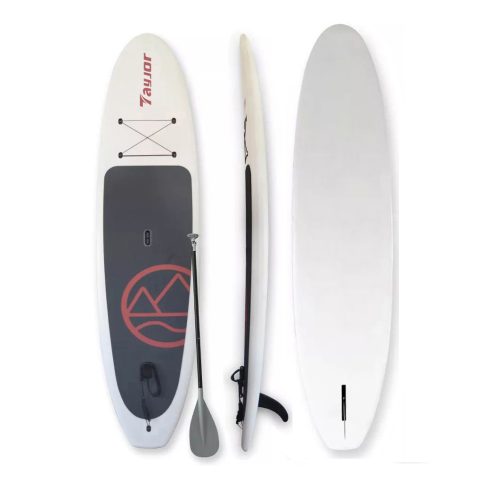Polyethylene Foaming paddle board – Rigid Paddle Board – Non Inflatable Paddle Boards – Manufacturer From China With Competitive Price
Foaming plastic paddle board
Polyethylene Foaming paddle board FEATURES:
- Iron Hide Construction
- Soft Non-slip EVA Form Deck pad
- Bungee rope storage system
- Comfort center Grip Neoprene handle
- Stainless steel D ring on tail for ankle leash
- Activity Type: leisure
- Rider level :Rookie
- The ride : Max stability
- board durability :Tough
PACKAGE INCLUDED:
- 1 x Paddle Boad (Optional accessory)
- 1×10’ Ankle leash (Optional accessory)
- 1 x Grooved tail fin(Standard accessory)
- 1 x Shoulder Strap (Optional accessory)
Container Loading:
Package : Cardboard , Bubble bag and poly bag
With Carton
20/40/40H/45H: 38/114/126/168
No Carton
20/40/40H/45H: 50/150/165/220
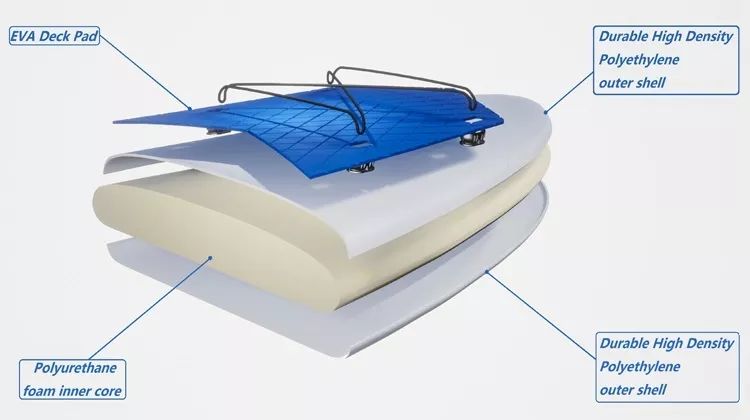
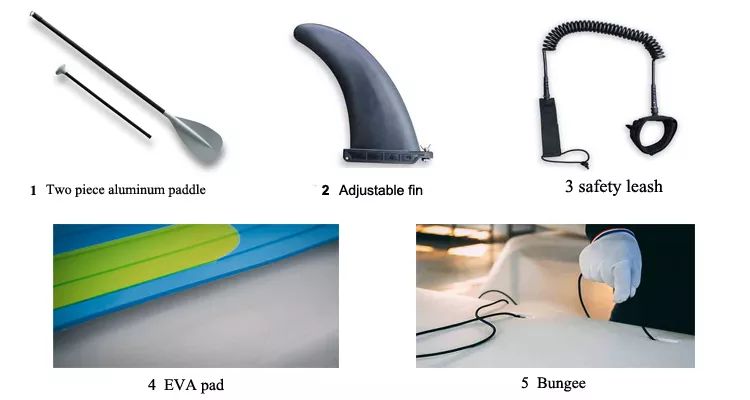
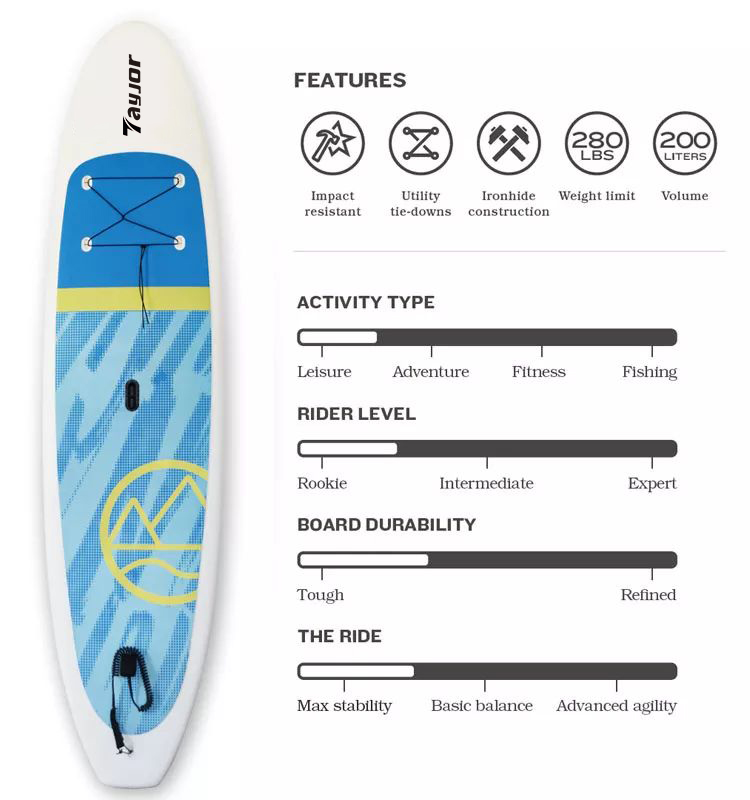
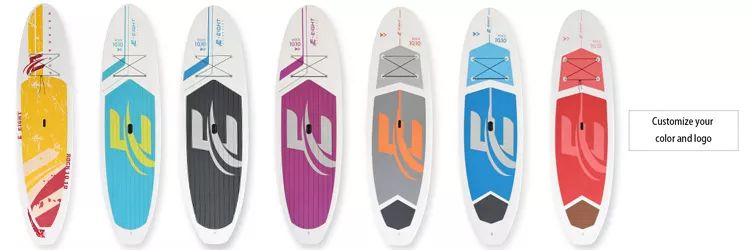
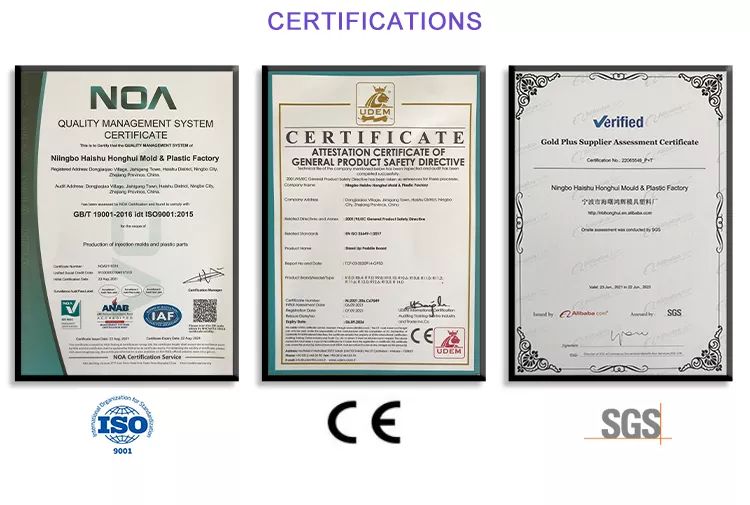
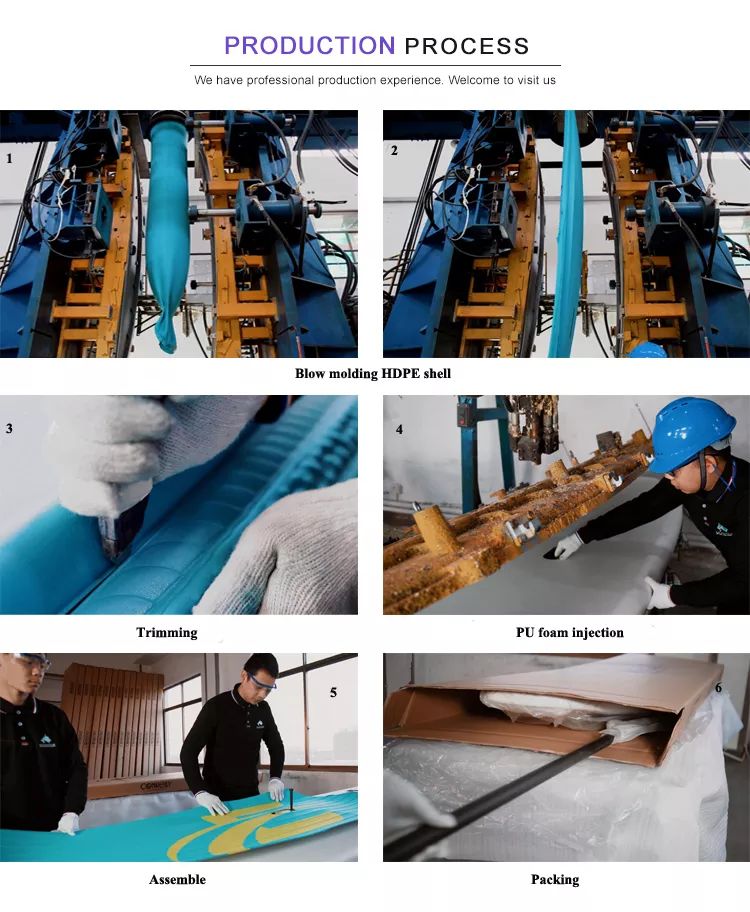
Polyethylene Foaming paddle board
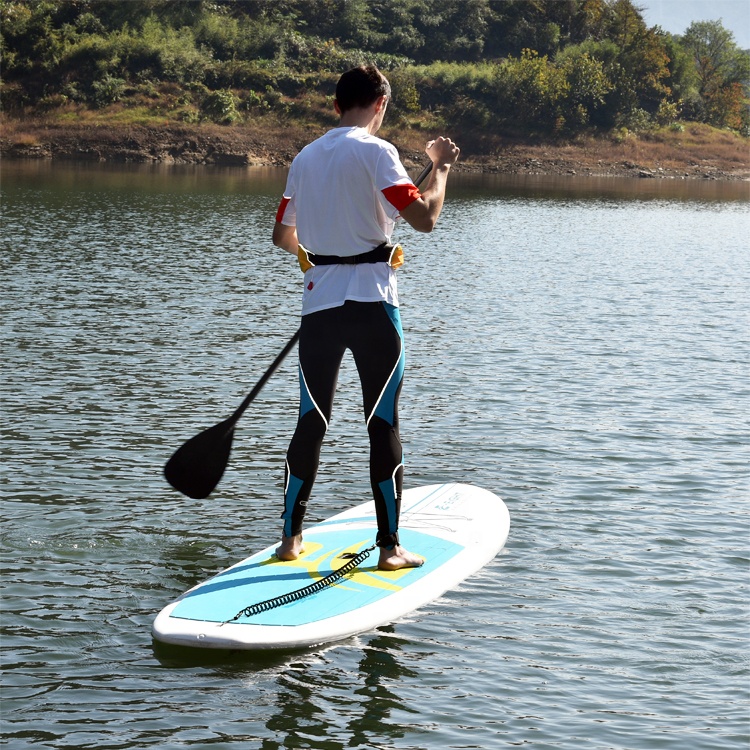
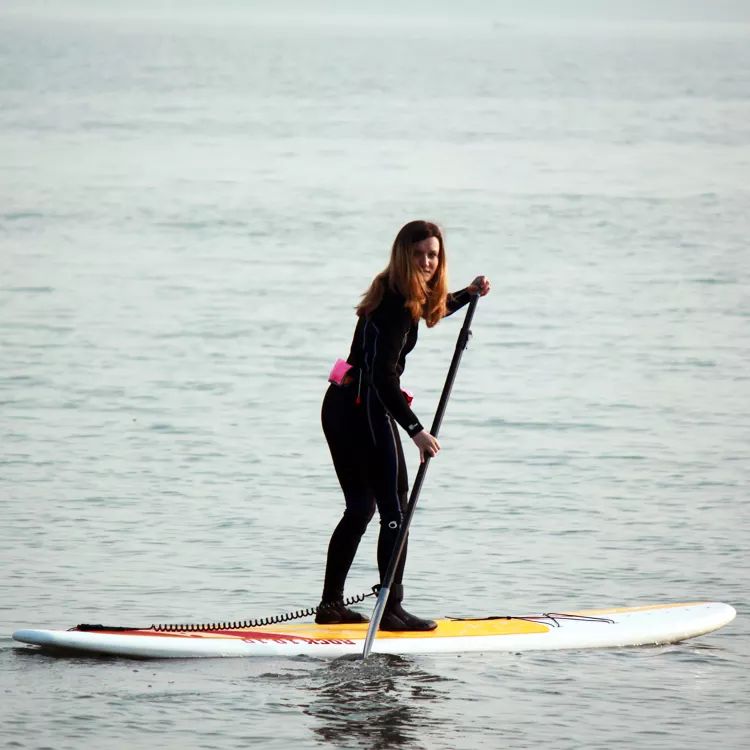
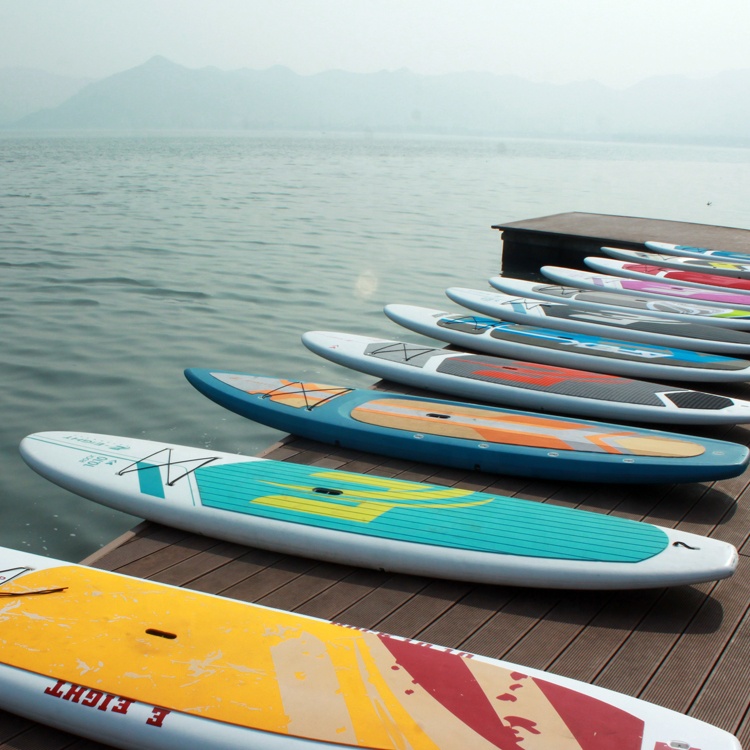
If you are interested in tayjor products and want to know more details,please leave a message here,we will get in touch with you shortly!
Introduction to Polyethylene Foaming Paddle Boards
Polyethylene foaming paddle boards are popular for their durability and performance. They are strong, lightweight, and perfect for all kinds of water activities. Let’s explore how these paddle boards are made and why they are a great choice for water enthusiasts.
Materials Used
First, let’s talk about the materials. Polyethylene is a type of plastic known for its strength and flexibility.
For paddle boards, polyethylene is combined with foam to create a lightweight yet sturdy board.
Production Process
The production of polyethylene foaming paddle boards involves several steps. Each step ensures the board is strong, durable, and performs well on the water.
Step 1: Creating the Foam Core
The process begins with creating the foam core. The foam provides buoyancy, making the board float easily on the water. To create the foam, manufacturers mix polyethylene with a foaming agent. The heat causes the mixture to expand and form a solid, lightweight foam block.
Step 2: Shaping the Foam Core
Once the foam block is ready, it needs to be shaped. Machines cut and shape the foam into the desired size and form of the paddle board. This step is crucial because the shape affects the board’s performance and stability on the water.
Step 3: Applying the Outer Layer
After shaping the foam core, the next step is to apply the outer layer of polyethylene. This layer protects the foam core and adds extra strength to the board. The polyethylene is melted and molded around the foam core. This process ensures a tight bond between the foam and the outer layer, making the board durable and resistant to damage.
Step 4: Cooling and Finishing
Once the outer layer is applied, the board needs to cool down. Cooling allows the materials to harden and set properly. After cooling, the board goes through a finishing process. This includes smoothing out rough edges, adding any design elements, and ensuring the board meets quality standards.
Benefits of Polyethylene Foaming Paddle Boards
Durability
Polyethylene foaming paddle boards are incredibly durable. The combination of a strong foam core and a tough outer layer makes these boards resistant to impacts and scratches. You can use them in various water conditions without worrying about damage.
Lightweight
These paddle boards are lightweight, making them easy to carry and transport. Whether you’re heading to a local lake or traveling to a distant beach, you can easily take your board with you. The lightweight design also makes it easier to maneuver on the water, and providing a smooth and enjoyable paddling experience.
Stability
The foam core provides excellent buoyancy, which adds to the board’s stability. This makes polyethylene foaming paddle boards a great option for beginners and experienced paddlers alike. Whether you’re paddling on calm waters or small waves, then you’ll find these boards stable and easy to balance on.
Versatility
Polyethylene foaming paddle boards are versatile and can be used for different activities. You can enjoy a relaxing paddle on a lake, practice yoga, or even catch small waves. Their sturdy design makes them suitable for various water conditions and activities.
Conclusion
Polyethylene foaming paddle boards are an excellent choice for anyone who loves spending time on the water. The production process ensures they are durable, lightweight, and stable. These boards offer great performance and versatility, making them perfect for different water activities. Whether you are a beginner or an experienced paddler, a polyethylene foaming paddle board will enhance your time on the water. Enjoy the benefits of a strong and reliable paddle board on your next adventure!


